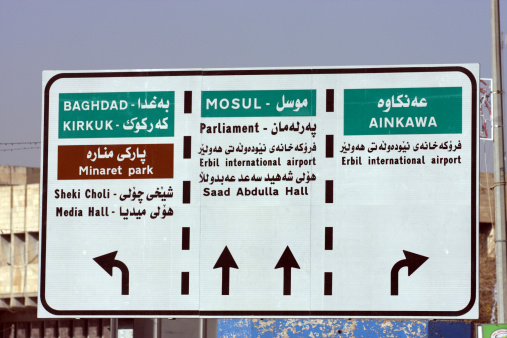
U.S. and U.S.-listed oil companies have staked their claims to certain Iraqi fields, and while production remains restricted, exploration and development are proceeding quickly. What follows is a review of the oil companies with the most exposure to Iraq and what they have at stake in the current conflict in the country. Imminent threats to northern Iraqi production around Kirkuk are no threat because no U.S. or foreign oil company has any production there. The insurgent threat has not yet spread to the southern part of the country where current production occurs.
BP PLC (NYSE: BP) has a 38% working interest in the Rumaila field in southern Iraq. Rumaila is one of the five largest oil fields in the world and holds proved reserves of nearly 18 billion barrels. BP’s 2013 share of daily production from Rumaila was 39,000 barrels a day. BP operates in Iraq under a technical services contract that the company says is the functional equivalent of a production sharing agreement (PSA). In 2013, 15% of BP’s proved reserves were associated with its PSAs in nine countries, including Iraq. Out of daily production of more than 2 million barrels a day, BP’s Iraqi production is almost immaterial.
ALSO READ: Nine Countries That Hate America Most
Exxon Mobil Corp. (NYSE: XOM) holds leases on approximately 900,000 onshore acres and at the end of 2013 claimed a net 23.2 development wells in Iraq’s West Qurna field. The field holds about half the proved reserves of Rumaila, and last year Exxon sold all but 25% of its stake in the field to Petrochina and Indonesia’s Pertamina. Exxon receives a per barrel payment of $1.90 for every barrel it produces above 244,000 barrels a day. Exxon also has agreements with the Kurdistan Regional Government in northern Iraq to explore for oil. Exxon produces no oil in Kurdistan, but the region is very near the current fighting in the northern part of the country.
Occidental Petroleum Corp. (NYSE: OXY) is part of a consortium that in 2010 signed a 20-year contract with Iraq’s South Oil Company to develop the 4-billion barrel Zubair field. The company’s share of production in 2013 was approximately 17,000 barrels a day, about 2% of its worldwide production.
ALSO READ: Companies With the Best (and Worst) Reputations
Royal Dutch Shell PLC (NYSE: RDS-A) owns 45% and is the operator of southern Iraq’s Majnoon field, which is holds 12.6 billion barrels of proved reserves. Production was restarted at Majnoon in September of last year, and when Shell lifted its first shipment for export in April, production was running at 210,000 barrels a day.
Chevron Corp. (NYSE: CVX) holds an 80% stake and is the operator of the Qara Dagh block in the Kurdistan region of Iraq. The project is still in the exploratory phase and there is no production. Because of its commitments in Kurdistan, Chevron is banned from bidding on projects in the rest of Iraq.
Oil field services companies could also be affected by the current fighting in Iraq. Schlumberger Ltd. (NYSE: SLB) posted nearly a quarter of its revenues in its Middle East & Asia sector, where revenues rose 23% year-over-year in 2013. Halliburton Co. (NYSE: HAL) posted about 34% of its revenues from its Middle East & Asia sector, and the company experienced double-digit growth in all its operating groups in that sector. About 18% of Baker Hughes Inc.’s (NYSE: BHI) 2013 revenues came in its Middle East & Asia Pacific sector, a jump of 24% year-over-year. None of these companies breaks out its Iraqi exposure in any more detail.
ALSO READ: The World’s Most Content (and Miserable) Countries
In 20 Years, I Haven’t Seen A Cash Back Card This Good
After two decades of reviewing financial products I haven’t seen anything like this. Credit card companies are at war, handing out free rewards and benefits to win the best customers.
A good cash back card can be worth thousands of dollars a year in free money, not to mention other perks like travel, insurance, and access to fancy lounges.
Our top pick today pays up to 5% cash back, a $200 bonus on top, and $0 annual fee. Click here to apply before they stop offering rewards this generous.
Flywheel Publishing has partnered with CardRatings for our coverage of credit card products. Flywheel Publishing and CardRatings may receive a commission from card issuers.
Thank you for reading! Have some feedback for us?
Contact the 24/7 Wall St. editorial team.




